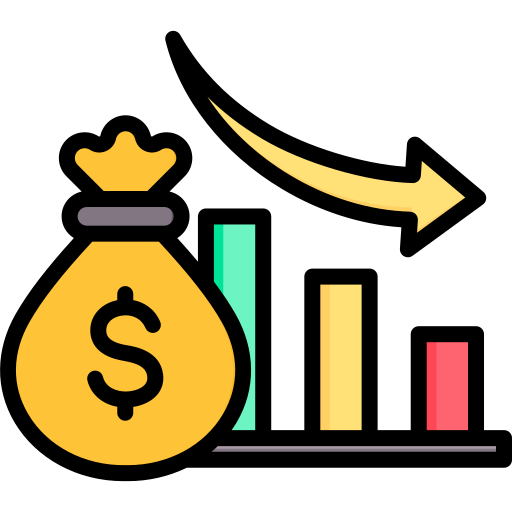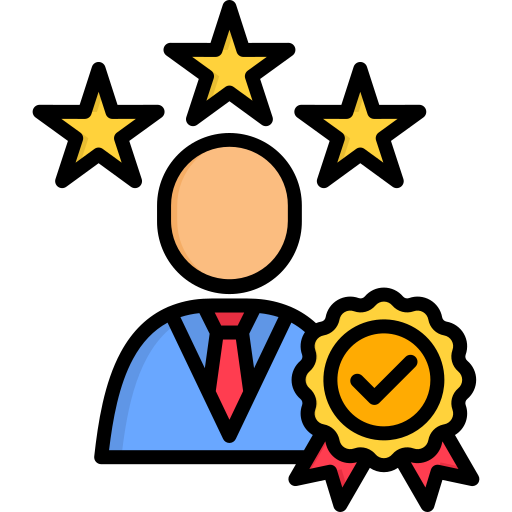Verified Insights
Precision-driven research you can trust. We uphold rigorous data validation processes to ensure every report is reliable and based on credible sources.
+91 9425150513 (Asia) +1(332) 2424 294 (Int'l) help@24lifesciences.com
MARKET INSIGHTS
Global GABA Capsules market size was valued at USD 256.8 million in 2024. The market is projected to grow from USD 275.4 million in 2025 to USD 418.7 million by 2032, exhibiting a CAGR of 6.1% during the forecast period.
Gamma-Aminobutyric Acid (GABA) capsules are dietary supplements containing the chief inhibitory neurotransmitter in the mammalian central nervous system. These capsules are widely used to promote relaxation, reduce anxiety, and improve sleep quality by modulating neuronal excitability. GABA supplements are available in various dosage forms, with capsules being the most popular due to their convenience and precise dosing.
The market growth is primarily driven by increasing consumer awareness about mental wellness, rising stress levels globally, and growing preference for natural anxiety remedies. While North America currently dominates the market, Asia-Pacific shows the fastest growth due to expanding middle-class populations adopting preventive healthcare measures. The 100mg-250mg dosage segment leads the market, accounting for 42% of sales in 2024, followed by the 250mg-500mg segment with 28% market share.
Rising Prevalence of Anxiety and Sleep Disorders to Propel GABA Capsules Demand
The global mental health crisis has reached unprecedented levels, with anxiety disorders affecting over 300 million people worldwide. This staggering figure represents a 25% increase from the last decade, creating substantial demand for natural remedies like GABA supplements. Clinical studies demonstrate that GABA supplementation can reduce anxiety markers by up to 40% in certain populations, making it a preferred alternative to prescription medications with fewer side effects. The sleep aid segment shows similar promise, with insomnia cases rising by nearly 30% post-pandemic. GABA's ability to improve sleep quality by regulating neurotransmitters positions it as a key solution in this growing market segment.
Growing Consumer Preference for Natural Supplements to Accelerate Market Expansion
Consumers are increasingly shifting toward natural wellness solutions, with the dietary supplement market projected to grow at 7.5% annually. GABA capsules benefit from this trend as they offer a plant-based, non-habit-forming option for stress and sleep management. Recent formulations combining GABA with complementary ingredients like L-theanine and magnesium have shown enhanced efficacy, driving product innovation. The clean label movement has further boosted adoption, with over 60% of supplement users now prioritizing products with transparent, science-backed formulations. Market leaders are responding by developing clinically validated GABA products with improved bioavailability to meet this demand.
➤ The sports nutrition sector presents additional growth potential, with GABA supplementation showing a 15-20% improvement in recovery markers among athletes in recent clinical trials.
Furthermore, expanding retail distribution channels, including specialty health stores and e-commerce platforms, are making GABA capsules more accessible to mainstream consumers. The online supplement market alone has grown by over 120% since 2020, providing manufacturers with new avenues to reach health-conscious buyers.
Regulatory Ambiguity in Supplement Industry to Limit Market Potential
While the GABA supplement market shows strong growth potential, inconsistent global regulations present significant barriers. In several key markets, GABA is classified differently - as a supplement in some regions while facing restrictions in others. This regulatory patchwork creates challenges for manufacturers seeking international expansion. Product claims face particular scrutiny, with health authorities increasingly cracking down on unsubstantiated benefits. Recent enforcement actions have resulted in costly reformulations and rebranding for some market players, demonstrating the financial risks of non-compliance.
Other Restraints
Absorption Challenges
Bioavailability remains a persistent issue, with only about 30-40% of oral GABA crossing the blood-brain barrier in standard formulations. While newer delivery technologies show promise, they significantly increase production costs and complicate manufacturing processes.
Consumer Education Gaps
Despite growing awareness, many potential users remain unfamiliar with GABA's benefits or confuse it with similar supplements. This knowledge gap requires substantial marketing investment to overcome, particularly in emerging markets where supplement literacy is lower.
Innovative Formulations and Combination Products to Open New Market Segments
The development of advanced GABA formulations represents a major growth opportunity. Time-release capsules that maintain stable GABA levels throughout the day are gaining traction, particularly for chronic stress management. Combination products featuring adaptogens like ashwagandha or nootropics such as lion's mane mushroom are capturing premium market segments, with some formulations commanding 30-50% price premiums. The pediatric supplement market also shows untapped potential, as parents increasingly seek natural solutions for childhood anxiety and focus issues.
Emerging research into GABA's potential benefits for cognitive function and metabolic health could further expand applications. Early studies suggest GABA may support healthy blood pressure and blood sugar levels, potentially opening doors to the wellness and preventative health markets. Manufacturers investing in clinical research to validate these benefits stand to gain first-mover advantage in these promising new segments.
Intense Competition and Price Sensitivity to Pressure Profit Margins
The GABA supplement market has become increasingly crowded, with over 200 brands now competing in North America alone. This saturation has led to aggressive price competition, particularly in the value segment where profit margins have compressed by nearly 15% in the past two years. Private label brands have captured significant market share by undercutting premium products, forcing established players to either reduce prices or differentiate through clinically-backed formulations.
Other Challenges
Supply Chain Vulnerabilities
GABA production remains concentrated in a few regions, making the supply chain susceptible to disruptions. Recent geopolitical tensions and trade restrictions have caused price volatility in raw materials, with GABA prices fluctuating by as much as 20% quarter-to-quarter.
Changing Consumer Preferences
The rapid evolution of wellness trends requires constant product innovation. What consumers valued in supplements just two years ago - such as high-dose formulations - has shifted toward balanced blends with complementary ingredients, requiring frequent portfolio adjustments.
The global GABA capsules market is witnessing substantial growth, primarily driven by the increasing prevalence of stress-related disorders and sleep disturbances. With nearly 30% of adults worldwide experiencing anxiety symptoms and approximately 45% reporting sleep difficulties, consumers are actively seeking natural alternatives to pharmaceutical interventions. GABA (gamma-aminobutyric acid) supplements have emerged as a preferred choice due to their ability to promote relaxation without the side effects associated with prescription medications. The market is further bolstered by the rising awareness of mental health wellness and the expanding consumer base preferring plant-based and non-habit forming solutions for daily stress management.
Sports Nutrition and Cognitive Enhancement Applications
A notable trend driving GABA capsule adoption is its expanding role in sports nutrition and cognitive enhancement segments. Fitness enthusiasts and athletes are increasingly incorporating GABA supplements into their regimens due to emerging research suggesting benefits in muscle recovery and growth hormone production. Furthermore, the nootropic supplements market is embracing GABA for its potential to improve focus and calmness without sedation. This dual application across both physical performance and mental acuity positions GABA capsules as a versatile supplement, contributing to expected market growth of over 7% CAGR through 2032.
Manufacturers are actively expanding GABA capsule product lines to cater to diverse consumer needs, introducing variations in dosage strengths (from 100mg to 1000mg), combination formulations (with L-Theanine, magnesium, or melatonin), and targeted applications (sleep support versus daytime stress relief). The development of fast-acting and sustained-release variants demonstrates the industry's response to specific consumer preferences. Simultaneously, distribution channels are witnessing significant transformation, with e-commerce platforms accounting for over 35% of GABA supplement sales in key markets. This omnichannel approach, combining traditional retail with direct-to-consumer models, is enabling broader market penetration and accessibility across demographic segments.
Innovation and Strategic Expansion Define the GABA Capsules Market
The GABA capsules market demonstrates a dynamic and moderately fragmented competitive environment, with a mix of established dietary supplement brands and specialized nutraceutical companies vying for market share. As consumer awareness about GABA's benefits for sleep support and stress management grows, manufacturers are rapidly expanding their portfolios through clinical research-backed formulations and strategic acquisitions.
Natrol LLC, a subsidiary of Himalaya Wellness Company, currently leads the market with its clinically studied GABA supplements, leveraging its strong retail distribution network across North America and Europe. Similarly, Now Foods has secured a significant position through its commitment to affordable, high-quality GABA products that appeal to both retail consumers and fitness enthusiasts.
While larger players dominate through brand recognition, mid-size companies like Pure Encapsulations and Thorne Research are gaining traction by targeting the professional practitioner channel with pharmaceutical-grade GABA formulations. Their growth is further propelled by partnerships with health clinics and wellness centers, demonstrating how specialized distribution strategies can yield substantial returns in this sector.
Emerging trends show that companies are increasingly focusing on stacked formulations, combining GABA with complementary ingredients like L-theanine or magnesium. Integrative Therapeutics recently launched a GABA-melatonin sleep formula that has captured significant market attention, illustrating how product innovation remains crucial for differentiation in this competitive space.
100 Mg-250 Mg Segment Leads Due to Optimal Dosage for Stress Relief and Sleep Support
The market is segmented based on dosage into:
Relieve Anxiety Segment Dominates Owing to Growing Mental Health Awareness
The market is segmented based on application into:
Standard GABA Formulation Maintains Market Lead Due to Established Efficacy
The market is segmented based on formulation into:
Online Retail Shows Strong Growth Trajectory for GABA Capsule Sales
The market is segmented based on distribution into:
North America
The North American GABA capsules market is currently the most mature, driven by high consumer awareness of mental wellness supplements and a robust regulatory framework ensuring product safety. The U.S. accounts for approximately 40% of global sales, with major brands like Natrol and Now Foods leading distribution through mainstream retail channels. Market growth is further propelled by increasing stress-related disorders – approximately 31% of U.S. adults reportedly experience anxiety disorders annually, creating sustained demand for natural calming supplements. While FDA oversight remains strict regarding health claims, manufacturers are innovating with combination formulas (melatonin-GABA blends for sleep) to differentiate products. The Canadian market shows parallel trends but with stronger preference for pharmacist-recommended brands in regulated healthcare settings.
Europe
Europe represents the second-largest regional market, characterized by Germany and the UK accounting for over 50% of regional revenue. The market benefits from widespread acceptance of nutraceuticals within holistic health approaches, though EFSA’s restrictive stance on neurotransmitter supplement claims presents formulation challenges. Notably, the Nordic countries exhibit the highest per capita consumption, linked to long winter seasons impacting circadian rhythms. Market differentiation occurs through organic certifications and clinical research partnerships – brands like Pure Encapsulations emphasize pharmaceutical-grade manufacturing standards. Eastern Europe shows emerging potential, though price sensitivity favors local generic brands over premium imports. Across the region, pharmacies remain the dominant distribution channel, commanding 68% of GABA supplement sales.
Asia-Pacific
As the fastest-growing region, Asia-Pacific is projected to surpass North America in market size by 2027, fueled by Japan’s established functional foods industry and China’s booming wellness sector. Japan’s long-standing GABA-enriched food culture (from chocolates to beverages) creates natural crossover demand for concentrated supplements. Meanwhile, China’s market expanded by 28% CAGR (2020-2024) as urbanization increases work-related stress. However, regulatory fragmentation persists – while Australia tightly regulates supplements as medicines, Southeast Asian markets allow more liberal product claims. India presents untapped potential with its Ayurvedic supplement industry beginning to incorporate GABA formulations, though consumer education remains a barrier in lower-tier cities.
South America
The South American market remains nascent but promising, with Brazil constituting 62% of regional GABA capsule sales. Growth drivers include rising middle-class expenditure on preventative healthcare and increasing clinical recognition of anxiety disorders. However, economic volatility leads to preference for lower-dose (100-250mg) products, while weak IP enforcement enables widespread local brand competition. Argentina shows parallel trends, with imported U.S. brands maintaining premium positioning through pharmacy channels. The lack of standardized regulations across the region creates quality inconsistencies, though Mercosur’s ongoing supplement harmonization efforts may improve market conditions long-term. Notably, sports nutrition represents an underdeveloped application segment with growth potential.
Middle East & Africa
This emerging market demonstrates divergent trends – Gulf Cooperation Council (GCC) countries show advanced adoption mirroring Western patterns, while African markets remain constrained by low disposable income. The UAE and Saudi Arabia drive regional growth through premium imports, with stress management supplements gaining popularity among expatriate and young professional demographics. South Africa represents the continent’s most developed market, though GABA products compete with traditional herbal alternatives. Regulatory frameworks across the region are evolving, with the GCC implementing stricter supplement labeling requirements since 2021. While e-commerce penetration remains below global averages, direct-selling models show success in introducing GABA products to middle-income consumers in urban centers.
This market research report offers a holistic overview of global and regional markets for the forecast period 2025–2032. It presents accurate and actionable insights based on a blend of primary and secondary research.
✅ Market Overview
✅ Segmentation Analysis
✅ Regional Insights
✅ Competitive Landscape
✅ Technology & Innovation
✅ Market Dynamics
✅ Opportunities & Recommendations
✅ Stakeholder Insights
This report is designed to support strategic decision-making for a wide range of stakeholders, including:
-> Global GABA Capsules market size was valued at USD 256.8 million in 2024. The market is projected to grow from USD 275.4 million in 2025 to USD 418.7 million by 2032, exhibiting a CAGR of 6.1% during the forecast period.
-> Key players include Natrol, Now Foods, Pure Encapsulations, Thorne, Pharma Foods International, Horbaach, and Integrative Therapeutics, among others. In 2024, the top five companies held approximately 42% market share.
-> Key growth drivers include rising demand for stress-relief supplements, increasing awareness about mental health, and growing popularity of natural sleep aids.
-> North America holds the largest market share (38% in 2024), while Asia-Pacific is projected to grow at the fastest CAGR of 6.8% through 2032.
-> Emerging trends include vegan GABA formulations, combination supplements with melatonin or L-theanine, and the development of time-release capsules.
Our Clients
“The data provided by 24LifeScience was clear, well-organized, and useful for internal strategy planning. It helped us understand the competitive landscape more effectively.”
“We used one of their market overview reports for early-stage feasibility work. It gave us a helpful snapshot of current trends and key players in our therapeutic area.”
“I appreciated the team’s responsiveness and willingness to adjust the scope based on our feedback. The final report was aligned with our expectations and timelines.”
“Their custom report on clinical trial trends was a helpful reference as we explored new indications."
“As someone working on early product planning, I found their therapeutic area briefs quite useful. The information was presented in a way that made it easy to extract key takeaways.”
“We didn’t need anything overly complex—just solid, dependable data. 24LifeScience delivered exactly that, without unnecessary fluff.”
“Their reports gave us a good foundation to start our own market assessment. While we supplemented it with other data, this was a great starting point.”
“I’ve used a few of their reports for academic and grant writing purposes. They’re generally well-cited and reliable for understanding market scope.”
At 24LifeScience, we combine domain expertise with dependable research delivery. What truly differentiates us isn't just what we do — it's how we do it. Our clients trust us because we offer consistency, security, value, and most importantly, insight that drives action.

Precision-driven research you can trust. We uphold rigorous data validation processes to ensure every report is reliable and based on credible sources.

We uphold rigorous data validation processes to ensure every report is reliable, up-to-date, and based on credible sources.

24LifeScience powers research for top firms in 20+ nations.Chosen by leading life sciences companies worldwide.

We offer competitive pricing models that align with your project scope — no hidden charges, no lock-in. Tailored pricing for every scale and need.

8–10+ years of life sciences expertise turned into strategic insights.We don’t just summarize data we contextualize it.

Whether it's a ready-made report or a custom project, we deliver within the promised timeline With real-time updates